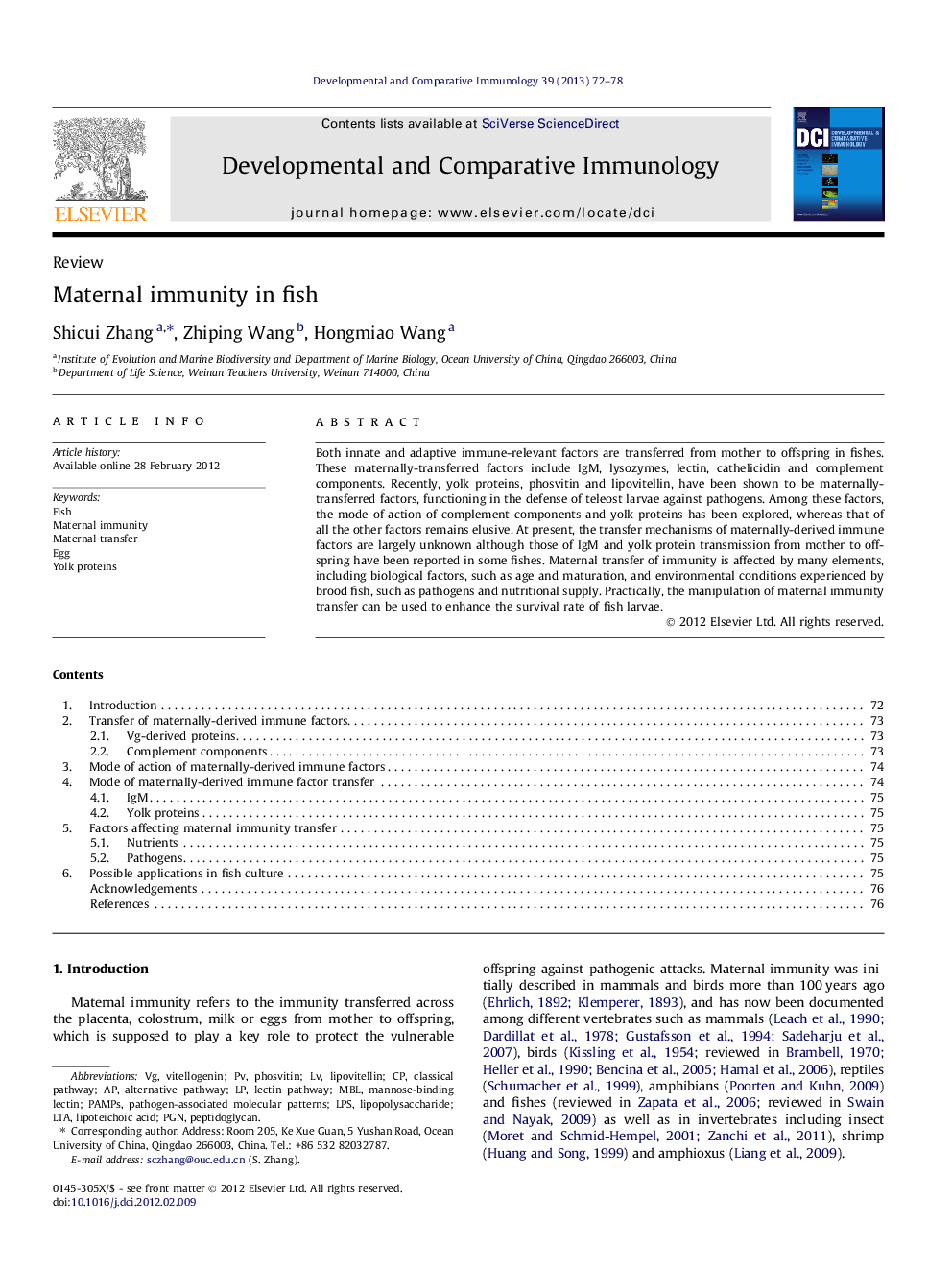| Article ID | Journal | Published Year | Pages | File Type |
|---|---|---|---|---|
| 2429432 | Developmental & Comparative Immunology | 2013 | 7 Pages |
Both innate and adaptive immune-relevant factors are transferred from mother to offspring in fishes. These maternally-transferred factors include IgM, lysozymes, lectin, cathelicidin and complement components. Recently, yolk proteins, phosvitin and lipovitellin, have been shown to be maternally-transferred factors, functioning in the defense of teleost larvae against pathogens. Among these factors, the mode of action of complement components and yolk proteins has been explored, whereas that of all the other factors remains elusive. At present, the transfer mechanisms of maternally-derived immune factors are largely unknown although those of IgM and yolk protein transmission from mother to offspring have been reported in some fishes. Maternal transfer of immunity is affected by many elements, including biological factors, such as age and maturation, and environmental conditions experienced by brood fish, such as pathogens and nutritional supply. Practically, the manipulation of maternal immunity transfer can be used to enhance the survival rate of fish larvae.
► Both innate and adaptive immune factors are transferred from fish mother to offspring. ► Vg-derived proteins and complement in eggs protect embryo from pathogenic attack. ► Vg-derived proteins function as a sensor, an antimicrobial effector and an opsonin. ► Complement in eggs protects embryos via alternative pathway activation. ► Maternal transfer of IgM and yolk proteins involves a receptor-mediated transcytosis.
